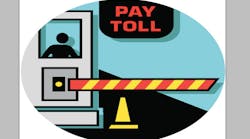DOT Secretary Foxx Urges Congress to Pass Long-Term Highway Bill
Eleven former transportation secretaries and the current secretary, Anthony Foxx, sent a letter to Congress urging it to look past passing stop-gap highway measures to adopt a long-term program.
Foxx unveiled the letter during a July 21 speech at the National Press Club in Washington, DC. The open letter acknowledged that Congress was expected soon to pass legislation that will keep the program funded with $10.9 billion that will run out no later than May 2015. “This bill will not ‘fix’ America’s transportation system,” the 12 secretaries wrote. “For that, we need a much larger and longer-term investment.”
Over the past five years Congress has passed 27 short-term measures and it’s been more than a decade since the last six-year funding measure was enacted, they noted. “This is no way to run a railroad, fill a pothole, or repair a bridge. In fact, the unpredictability about when, or if, funding will come has caused states to delay or cancel projects altogether.”
The letter pointed out that by 2050, the United States is expected to add 100 million people and will need to move 14 billion additional tons of freight, which is almost twice what we move now. The secretaries also said we need to invest $1.8 trillion by 2020 just to bring our surface transportation infrastructure to an adequate level.
At the press club Foxx attacked Congress for not acting more quickly on the President’s four-year, $302 billion bill, which Obama has been promoting around the country between fundraising events.
However, at no time in the past 40 years has a multi-year highway program been passed during an election year. All those in Congress involved in this issue agree that a new highway plan is needed, but no one can agree on how to fund it. For example, during the Press Club event Foxx noted that President Obama is opposed to raising fuel taxes, which have been the primary method for financing federally-funded highway programs for more than 60 years.
Leslie Blakey, president of the Coalition for America’s Gateways and Trade Corridors, agreed with the DOT secretaries’ letter. “Congress should heed their call to come together to support increased funding on a long-term basis,” she said. “Congress has been held hostage too long to the notion that our civil society must ‘live within our means.’ Unfortunately, due to this way of thinking, the U.S. has in recent years refused to make even the bottom line investments needed to maintain our transportation infrastructure, much less fund expansions of capacity.”
She pointed out that federal infrastructure investment as a percentage of GDP has fallen to below 2%, marking the lowest level since World War II and contrasted that spending level with 4% for Canada 4.5% for Mexico, 5% for Europe, 8% India and 9% for China.
David Sparkman is a member of MH&L's Editorial Advisory Board and founding editor of ACWI Advance (www.acwi.org), the newsletter of the American Chain of Warehouses Inc.






